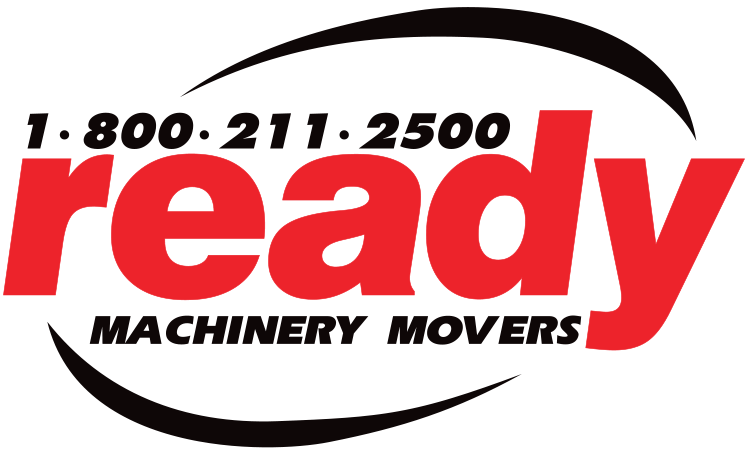As the saying goes, “Time is money.” Now that winter is here, your machinery might need some downtime to do some maintenance and make sure everything’s up and running by the time spring turns up again. For some people, storing your equipment for winter can mean a drop in productivity until the machinery gets brought back to speed and the weather calms down. However, this downtime can be an opportunity if you know how to use it.
Downtime can be a great chance to do some maintenance in more ways than one. Your machinery isn’t the only thing that needs fixing up. Think of the downtime as a way to take stock and do some restructuring to make your business a bit more efficient for the new year. Here are a few great tips to help you optimize your downtime for greater success.
- Start thinking proactively – Everything starts with your mindset. The first step to making some changes is adjusting your mentality. Adopting a more proactive approach is a great way to start preparing for whatever’s coming next. Proactive thinking is key to ensuring that you adopt the right habits and systems to succeed.
One strategy you can investigate is the Lean system. At its core, the idea is to maximize value for your customers and minimize waste. For example, you could develop methods to simplify your work processes to deliver goods and services to your customers in less time.

- Undertake a risk audit – In short, a risk audit is a process of identifying, recording, analyzing, and reporting the risks present in a given situation. In the case of a company, it’s one way of identifying the possible risks you face in the upcoming year, to name one example.One risk faced by many businesses is the impact of equipment obsolescence on your workflow. As time goes on, it may become harder to find the parts you need to service all your equipment, especially if you’re using older machinery.
Think of a risk audit as a way to plan for the worst. In case of any emergency, the audit helps you identify the challenges you’re likely to face, and develop solutions to deal with the problem more smoothly.
- Train your employees – Downtime can be a convenient time to review your employees and ensure they’ve kept their skills sharp. Safety is always a priority, and now is a great time to take refresher courses to make sure everyone knows how to do their work properly. Safety training becomes even more important if you’ve added some new equipment or started new projects. The extra training can be good for your workers too. It’s a great way to empower them by giving them the tools and training to diagnose future issues and find solutions.

- Improve staff communication – One foolproof method of improving efficiency across departments is enhancing communication between all your staff. It’s essential for employee morale and productivity that they feel like part of a larger team. There are several simple ways to improve communication at work. For example, try using the downtime to schedule team-building exercises and retreats. These excursions can be a way for employees to bond and get to know more of their coworkers than the circles they tend to work with.
It’s vital you make your employees feel involved with important decisions. Help your employees understand the relationship between their work and the company’s success. Think of it as a way to help employees feel more than merely cogs in a machine; after all, happy employees are productive employees.

- Review your insurance coverage – As a business, you’ll need to have different types of insurance for your routine operations (e.g. commercial general liability and workers’ compensation). Use the downtime to contact your insurance agent and conduct an annual review. Discuss what changes you have in store for your business for the coming year so you can make the right adjustments to your policies.

- Start setting goals – Ask yourself: What do you want to accomplish this year, and what will it take to get there? Once you have the answers, it gets easier making plans to proceed. Are you planning on expanding the business or upgrading your equipment? Then you’ll need to start laying the groundwork (e.g. securing permits, doing some renovations, and developing a budget). The downtime may last a while, so you’ll have plenty of time on your hands to strategize.
Work with your team to do some long-term thinking and start planning for the new year. Remember to set realistic goals so you can make reasonable progress once your workflow gets back to normal.
- Assess your hiring needs – When you start analyzing where your business stands and where you want to go, you also need to take hiring into account. If you’re planning on expanding, there’ll be plenty of new openings for your business (e.g operators for your lift trucks, supervisors, and back-office employees), so it’s a good idea to start planning for the new hires now. Start by creating job descriptions and networking with sources for new employees. Checking the trade schools, community colleges, and apprenticeship organizations can be great places to start. Once the downtime ends, you’ll be in a good spot to start training your new workers and getting them up to speed with company policy.

- Catch up on preventive maintenance – Equipment can’t last forever, but with frequent maintenance, you can keep it going much longer than it typically would. A consistent maintenance schedule is key to extending the lifespan of your machinery and increasing their overall effectiveness. Installing new equipment is key to staying competitive and ensuring you stay up-to-date on the latest technology in the field. With a more preventive approach, you can minimize breakdowns and technical issues that could cut into your productivity.
On another note, it’s also a great way to ensure safer working conditions for your workers. When the machinery works smoothly, you minimize the risk of accidents and allow workers to stay at their jobs. Besides, your workers will certainly thank you for it.
Downtime can be a golden opportunity for a business. It’s time you can use to analyze how you do business and find ways to do it better. Whether it’s updating your systems or connecting with your employees, you can use the off-season to your advantage and improve your company’s workflow. Preventive maintenance is a must for a successful business, but so are finding ways to empower your employees and developing the right mindset for success.
When you need a helping hand with your machinery needs, give Ready Machinery a call. We offer complete, efficient, and affordable machine moving services to help make your relocation turn out smoothly. Whether you’re moving a single machine or the whole plant, we’ve got the fleet to help you from start to finish.
Call Ready Machinery at 1-800-211-2500 or visit our contact page to request an initial quote.
